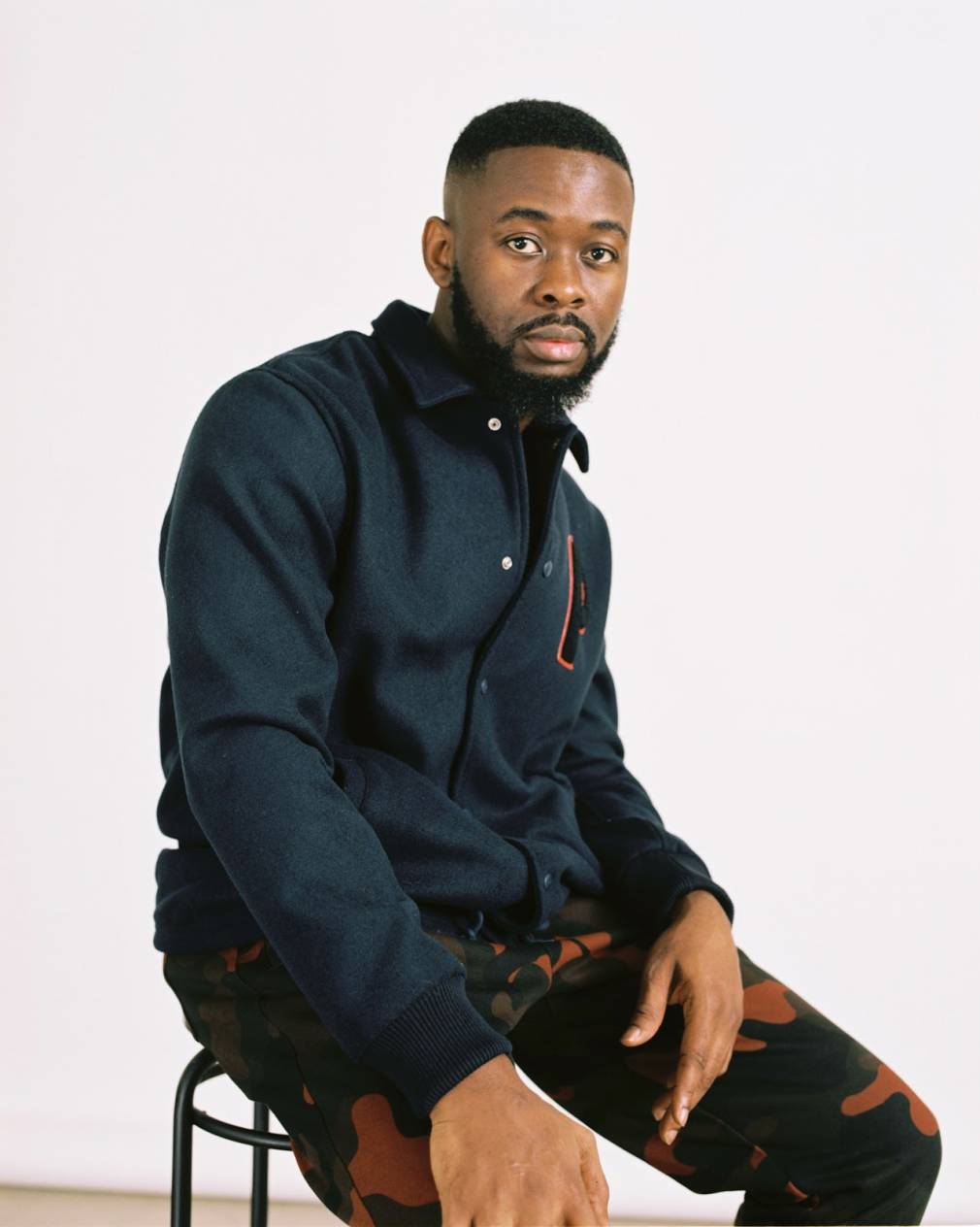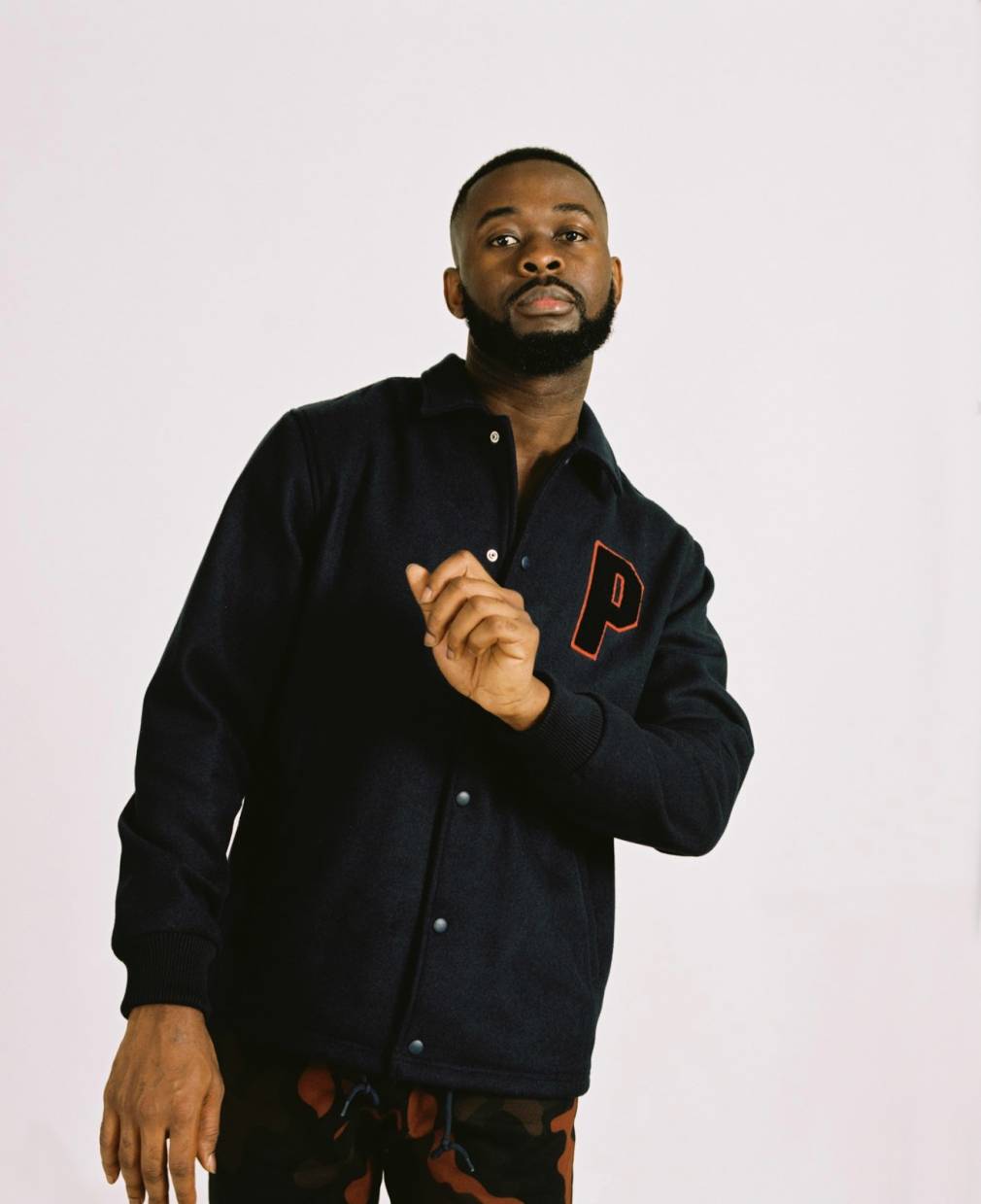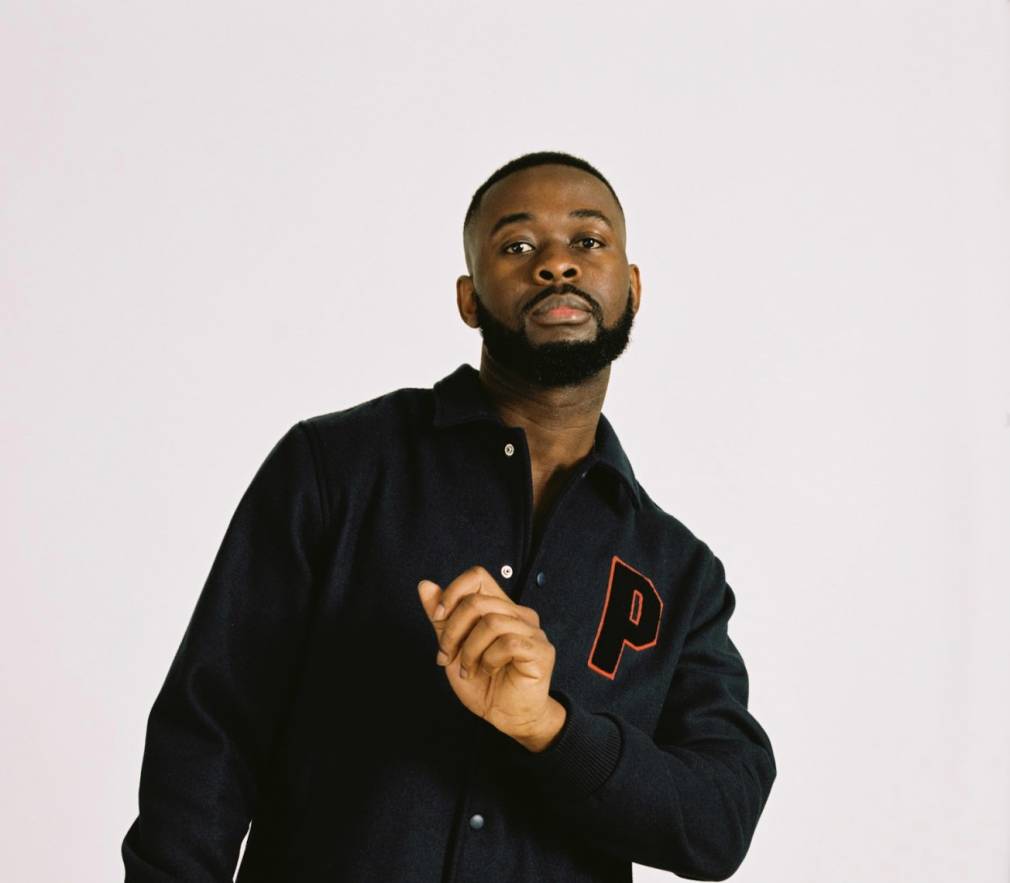An undeniable figurehead, Sarz, broke Nigeria, its music and the role of the beatmaker into the world. Whether collaborating with Wizkid, Burna Boy and Drake or getting sampled by Beyoncé, the Nigerian producer who’s constantly budding projects is eternally unsatisfied. Meet the king that’ll never settle.
Producing Nigerian music since 2005, Sarz’s track record speaks for itself. Locally, he has been working with Wizkid for more than 10 years, helped elaborate Niniola’s Afro-house sound, and collaborated with all the current greatest stars. Internationally, he co-produced Drake’s hit “One Dance”, has been sampled by Beyonce and is at the origin of Skepta’s hit “Energy (Stay Far Away)”. No doublespeak, no hyperbole, no self-deprecation: Sarz is not pretentious but he knows what he’s worth. When he calmly claims that he has no equal in his field, he’s not boasting, he’s merely observing. Objectively, it is hard to disagree. During his confinement in Nigeria, PAM talked to the man who has been feeling like a “shark in a pond” of Afrobeats for more than 10 years.
The trailblazing ascent of a beatmaker
The Sarz saga begins in Benin City where he caught the music bug in spite of himself. The young man had the ability to memorise in detail each instrumental of his favourite tracks, paying “more attention to the instrumental than the song”. In 2005, at the age of 15, he sold his first production for 3000 Nairas. Satisfied, he continued producing to indulge his competitive nature, “I just wanted to prove to myself I could do it,” he says. However, the Nigerian industry at the time was far from kind to beatmakers, and Sarz based his philosophy on famous American producers (Pharrel Williams, Timberland, Dr Dre…). The artist recalls this complicated period without any particular regret: “It was very tough. Most artists were trying to get free instrumentals. Otherwise, they would look elsewhere… which would starve you. There were times when I had nothing, no money, but I knew what I was worth. So I took a stand: if I wasn’t given what I deserved, I wouldn’t produce. Eventually, the artists saw the value I was bringing, and they were forced to work with me. It took a while, but it worked”. Like an athlete, it was his desire to win, to be the best, that kept him going: “I took it seriously when I started making a lot of people in the industry feel uncomfortable,” he explains calmly. “The other producers saw me as a threat, and I realized I could be the best if I kept going”. His professional approach had him crossing paths with a certain Wizkid in 2010. “I knew he was super talented the first time we worked together. But it didn’t work out because he couldn’t accept my terms at that time. A year later, he was a superstar and our paths crossed again”. For his part, Sarz had produced Lord of Asaja’s “See Drama”, practically inaccessible today, and got to meet the top Naija rappers of the time: 9ice, Shank, Jahbless… In 2011, he “Kako Bi Chicken” with Reminisce – one of the biggest West African street hits. In 2012, he was nominated “Producer of the Year” at the Nigeria Entertainment Awards. In 2013, he produced two tracks on Wizkid’s album “Ayo”, an undeniable Afrobeats classic. Step by step, Sarz carves out a central place for himself in this booming local musical genre, and the years that follow see him collaborating with all the biggest stars of Afrobeats (Wande Coal, Mr Eazi, Tekno, Burna Boy, 2Baba), each track introduced by a haughty “Really?”, his beatmaker tag.

Sarz Academy
While he is at the peak of his art at home, the Sarz saga continues. A unique occasion arose when the Canadian rapper Drake invited him to collaborate on “One Dance” featuring Wizkid, released in 2016. Sarz definitely made the most of the occasion: exploiting his magic, the producer makes “One Dance” the biggest hit on the planet that year. “It changed a lot of things. It brought a new fanbase and new artists to collaborate with”. Two years later, the phenomenon, triggered by the song, was in full swing: Beyoncé made an entire album of Afro-Urban music, the global jet-set spent Christmas in Ghana while Nigerian artists like Davido and Burna Boy were touring throughout the West. Without any noticeable excitement, and some mild vengeance, tone Sarz describes his genre’s place in today’s world: “It was about time. And I like the fact that what’s happening with Afrobeats worldwide is not diluted: it’s original, it’s African. Ten years ago, if you were travelling around the world, you wouldn’t want to speak with a Nigerian accent. Now, everyone wants to associate with the culture, the fashion, the food… Music has made that possible”. Sarz isn’t one to follow trends and so he isn’t worried about a day when global audiences move on to another craze: “African music doesn’t necessarily have to be global. We simply have to take advantage of today to develop our own industries so that we can make a living making African music in Africa”. He admits without any complex that this global boom comes at a good time: it would indeed be more difficult for him to make a living from his music if he could only rely on the Nigerian industry. He sighs: “it’s crazy. The structure is lacking, and the average Nigerian doesn’t necessarily have access to internet. It affects the numbers: you can see artists selling out stadiums and only doing 10 million views. So many things have to be done for the structure to be right so that we could live very comfortably from making music in Africa”. The subject is close to his heart and he’s acted on it. In 2015, he created the Sarz Academy, dedicated to training raw talent and promoting leadership among young Nigerian producers. Sarz is more explicit: “I want them to learn how to use their talent to make money. And I’m very personal with it. It is my academy, so I choose who gets in”.
Perpetual experimentation
His legacy seems to be something Sarz thinks about, although he claims to have built his career without any real calculation. Talking to him, one senses his desire to take the producer status to the next level. He shows it for example by putting his name as a featured artist on the tracks he produces, an uncommon practice among beatmakers who usually just put their name discreetly in the credits. His solo project released in 2019 is also proof: a purely instrumental EP, without any vocals, that has nonetheless successfully managed to integrate the West African nightlife. The name of the project? “Sarz is not your mate”, “mate” meaning “equal” in a Nigerian context. “It’s the very first project of its kind. And do you know how many DJs released a project like this right afterward? ” He smiles for the first time. “There is now a market in Nigeria for electronic music because of SINYM”. His ambition to have the same status as the singer has also resulted in “I LOVE GIRLS WITH TROBUL”, a joint project with Nigerian singer WurlD. The goal is to continue to take Afrobeats further, and the EP is 8 tracks of storytelling with an RnB/Pop sound never before explored within the genre. “It was very organic. I sent him some instrumentals, and he said he’d try something. The next day, he sent me “Trobul”, and I immediately told him we have to work on a project”. One of Sarz’s strengths is his constant willingness to go further and try new things. “The more I’m exposed, the more I want to experiment”, the artist analyses himself. “I’m very forward-thinking, and I want to see how far I can go”. His music, to which he brings EDM, Afro-house or RnB, is, at the end of the day, a balancing act between his attempts at innovating and a need to remain relevant to his listeners. But no worries about that: “I grew up in Nigeria, it’s never going to leave me,” he laughs for the second time. The secret to his longevity at the top of the industry? It’s threefold: first, his “essence”. “It’s the one thing I have that nobody else has. If I can’t be myself when I work with you, what’s the point? ” he asks knowingly. Second, his analytical skills. “I see the strengths of each artist, and I try to get the best out of them according to my perspective”. Finally, his insatiable character that extends beyond making music: as if it weren’t enough to be among the top African producers, to train the future generation and to literally create new genres, he has recently launched himself into DJing. When will he be satisfied with where he’s at? He answers with laughter again, but seems surprisingly unsettled. “I don’t know… the day I get satisfied, I’ll probably retire. But I’ll always be experimenting. Maybe I’ll be a DJ, maybe I’ll go into classical music, maybe I’ll go into acoustic music. But it’ll be something new. I think that’s what defines me more than anything else. ” He’s currently working on an EP and an album. What innovation can we expect from both projects? “We’ll see!”. Fourth and final laugh of the interview.





